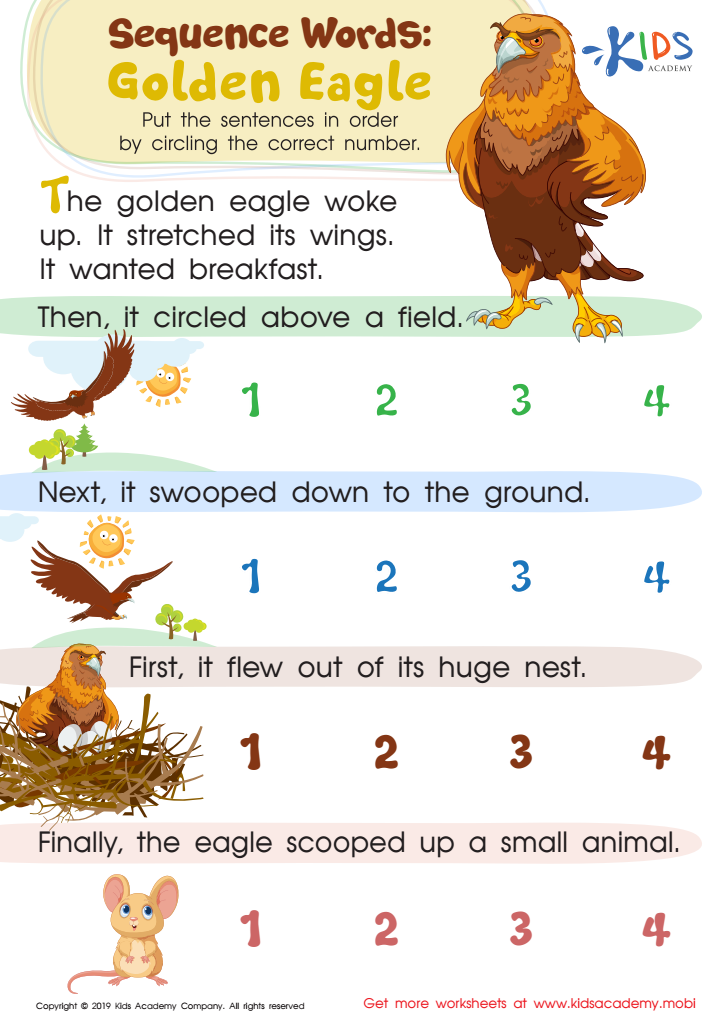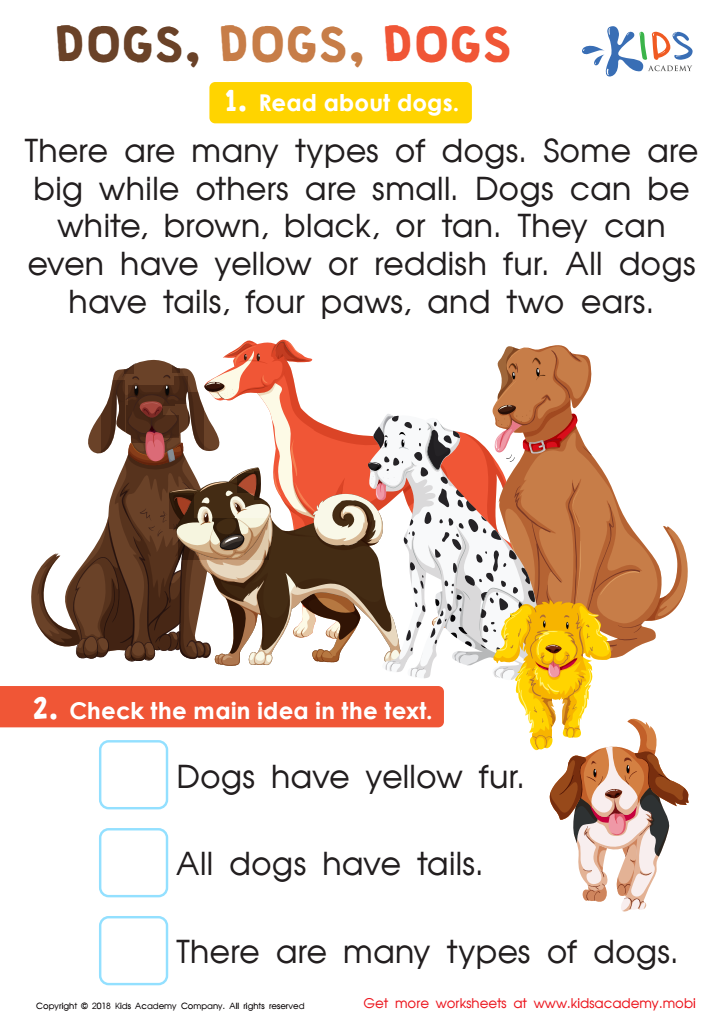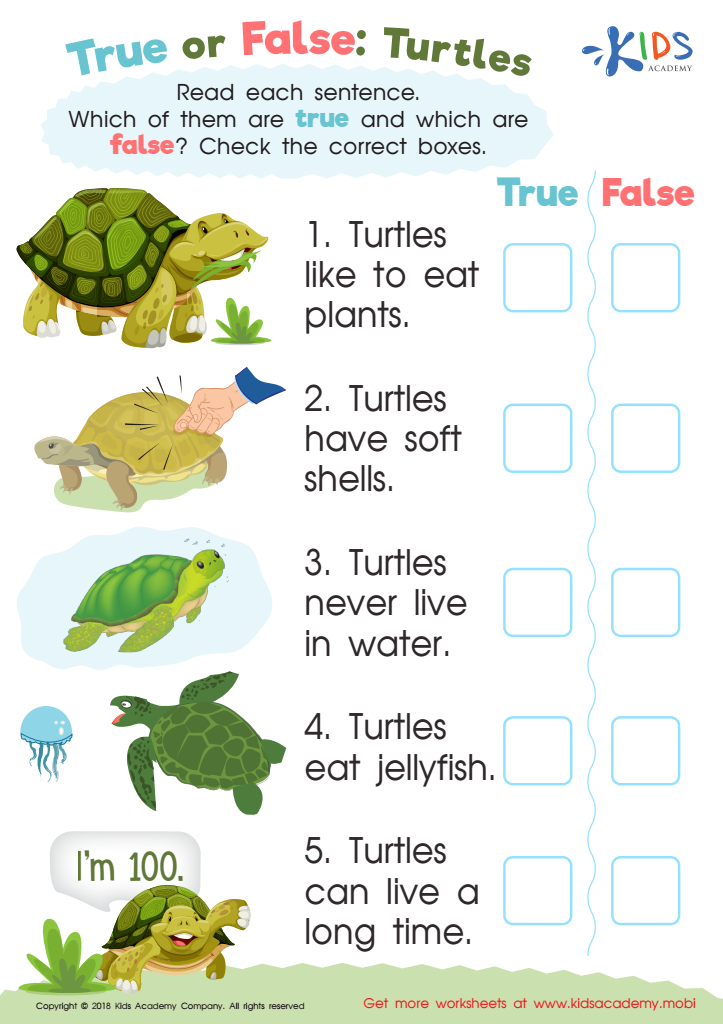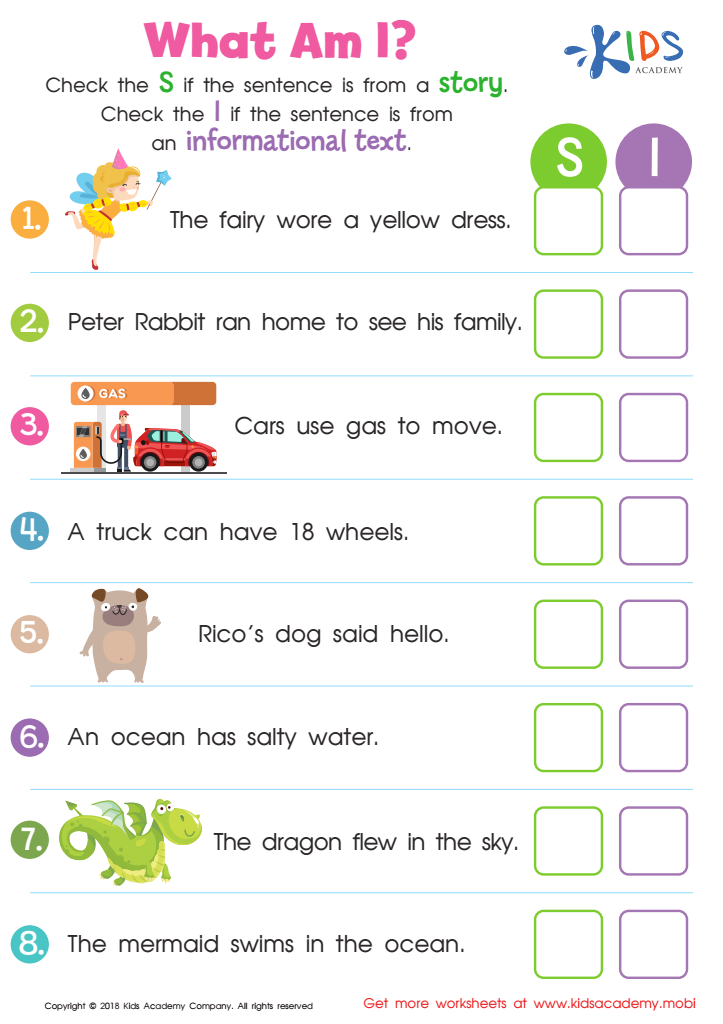Logical Reasoning Reading Non-Fiction Worksheets for Ages 3-8
4 filtered results
-
From - To
Unlock the power of logical reasoning with our engaging non-fiction reading worksheets designed for children aged 3-8. These carefully curated resources help young learners develop critical thinking skills through exciting, age-appropriate content. By exploring a variety of topics, kids enhance their comprehension and analytical abilities while having fun. Our worksheets are perfect for both classroom and home settings, encouraging exploration and curiosity about the world. With vibrant illustrations and thought-provoking questions, children will be captivated as they deepen their understanding of logical reasoning concepts. Empower your child to think critically and read confidently with our delightful selection of non-fiction worksheets today!


Sequence Word Eagle Worksheet


Dogs, Dogs Worksheet


True or False: Turtles Worksheet


What Am I? Worksheet
Logical reasoning and reading non-fiction are essential skills for children aged 3-8, and parents or teachers should prioritize them for multiple reasons. Firstly, logical reasoning develops critical thinking, enabling children to analyze information, identify patterns, and solve problems effectively. It helps them make connections between ideas, fostering a deeper understanding of the world around them.
Introducing non-fiction reading at a young age expands children's knowledge and vocabulary while nurturing their curiosity about varying topics—biology, history, or science. It provides facts, encourages exploration, and stimulates questions, promoting a love of learning. Reading non-fiction can also help children grasp complex concepts more easily, as it presents real-world applications of what they discover.
Moreover, engaging with logical reasoning through discussions sparked by non-fiction reading can enhance communication skills. When children articulate their thoughts, they learn to express themselves clearly and confidently. Lastly, developing these skills can create a solid foundation for future academic success, paving the way for proficient reading, writing, and comprehension abilities.
In summary, investing time in fostering logical reasoning and non-fiction reading in early childhood is crucial for cognitive development, curiosity nurturing, and academic preparedness, ultimately shaping informed and capable individuals.
 Assign to My Students
Assign to My Students





















